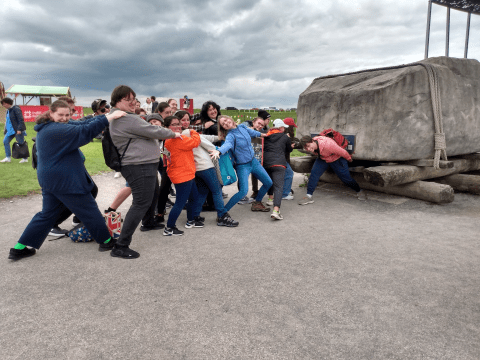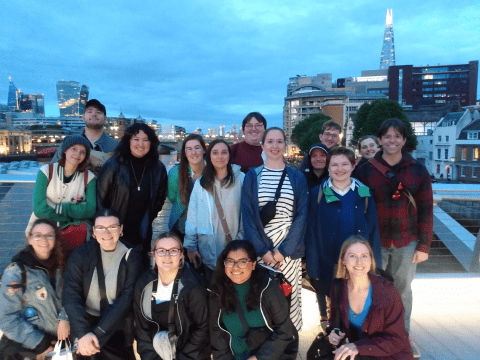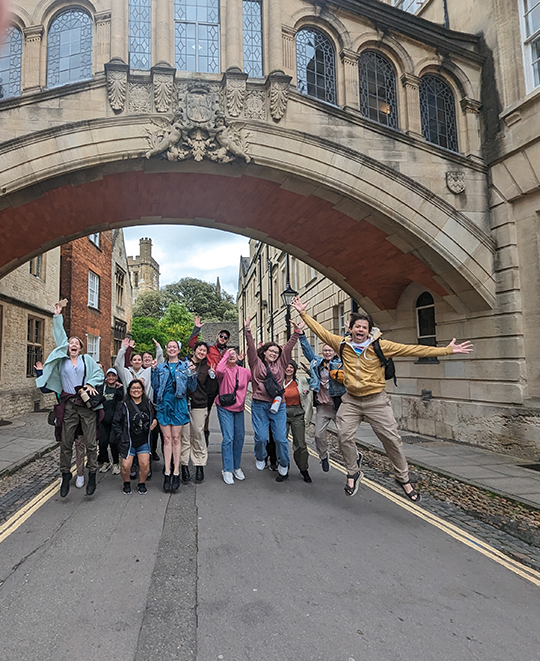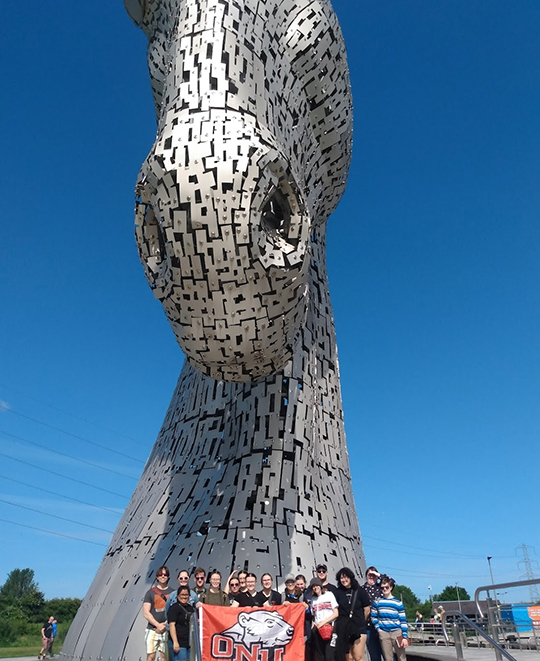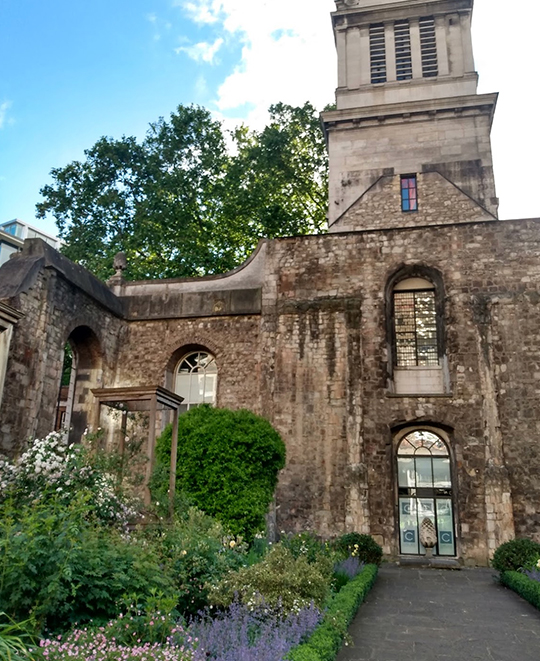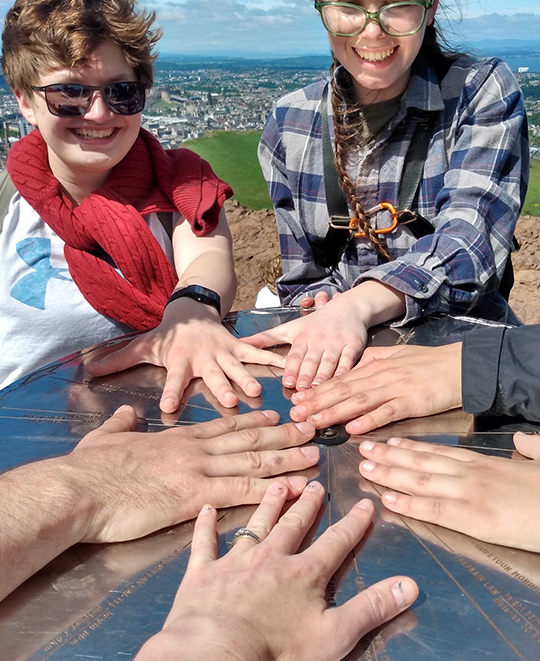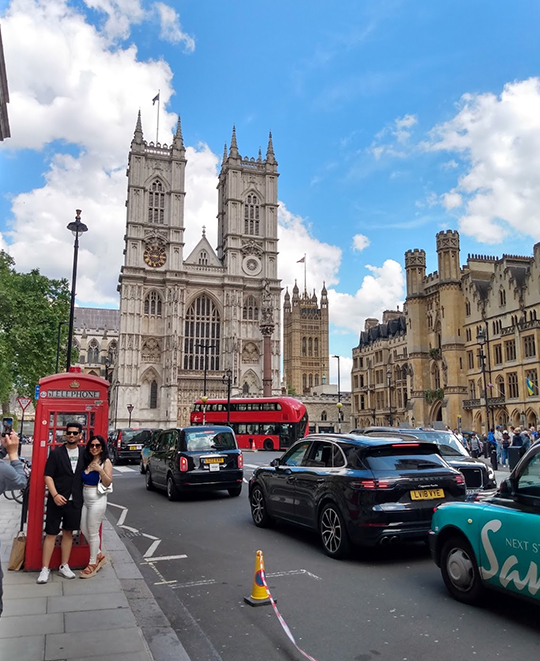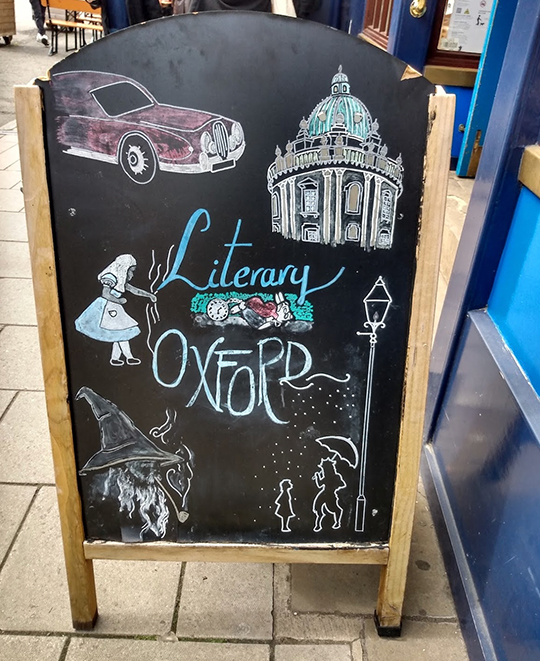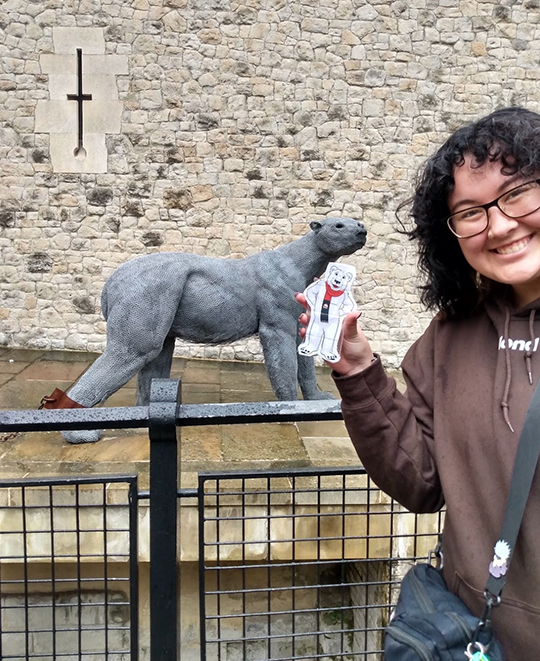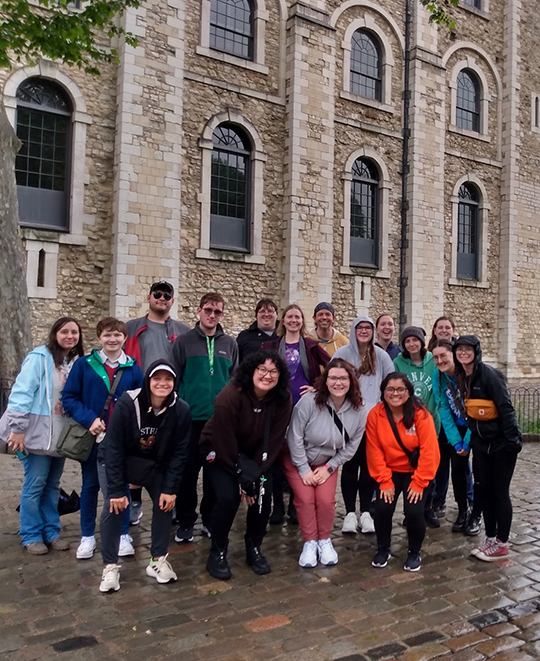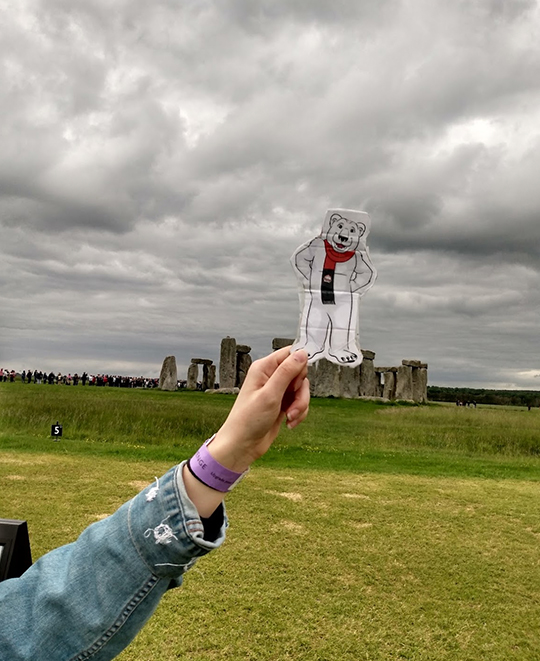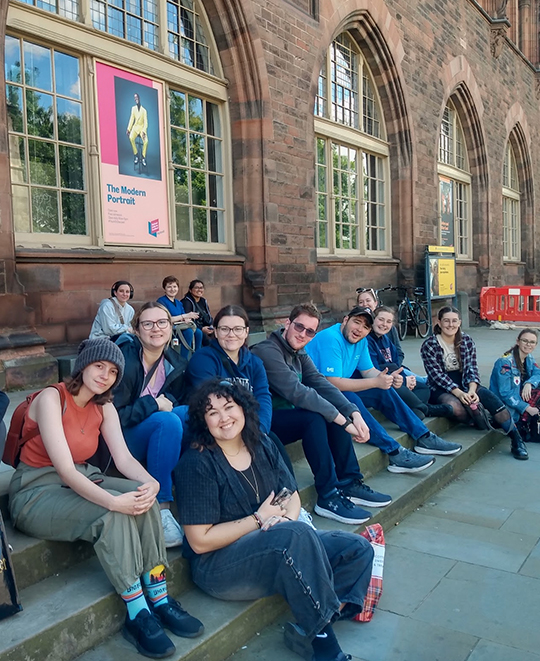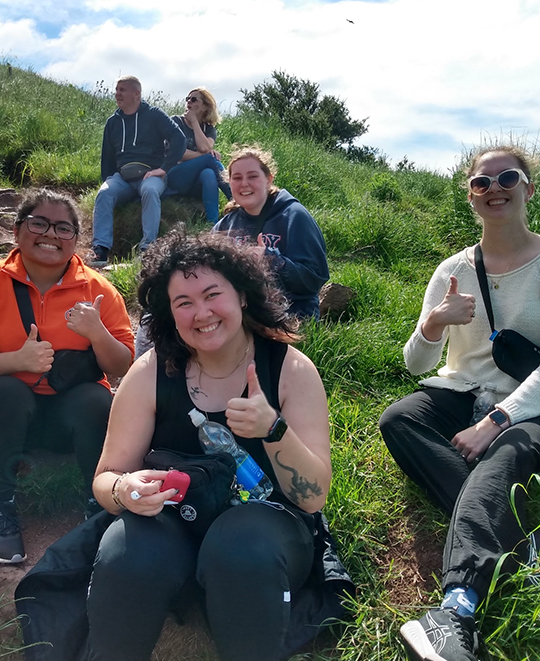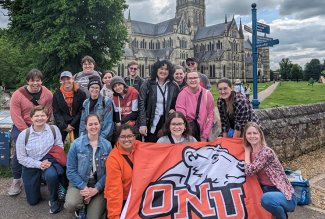
Nothing tops being transported to a magical place like Narnia or Middle-earth through the pages of a book.
Unless, of course, you get to build your own magical world, pen your own fantasy fiction story, and spend two weeks abroad exploring London and Edinburgh for research and inspiration.
That’s the unforgettable learning adventure undertaken by 15 Ohio Northern University students this spring.
The students took a special topics creative writing course in the Getty College of Arts & Sciences entitled “World Building in London and Edinburgh” taught by Jennifer Pullen, Ph.D., associate professor of creative writing. A leading expert on the fantasy genre, Pullen recently authored the only college textbook on fantasy fiction writing.
For fantasy aficionados and budding writers, this ONU course “seemed too good to be true,” said Lily James, English education major. “I just had to take it,” she added.
Pullen explained that the course required students to read and reflect on several fantasy fiction texts. Classmates then collaborated to build a magical world set in 19th century Edinburgh, Scotland, an exercise that required a deep dive into the history of Scotland and the Victorian era as well as extensive creativity to re-imagine that world touched by magical elements.
After creating a catalog of characters, objects, places, and historical events in their fantasy world together— “ingredients for the stories”—each student wrote their own fantasy fiction tale, said Pullen.
At the semester’s end, the class set off on a two-week literary pilgrimage to London and Edinburgh. They walked the cobblestone paths that literary giants C.S. Lewis and J.R.R. Tolkien once strolled at Oxford University. And they explored many iconic locales like The Real Mary King’s Close; the Scottish Highlands; Stonehenge; The Tower of London; Edinburgh Castle; and more.
Upon returning to the U.S., each student revised their fantasy story based on their heightened understanding of place.
Nicolas Brodsky, mechanical engineering major, enrolled in the course because he’s “into nerdy stuff like Star Wars and Game of Thrones.”
“I absolutely adored the fiction writing part of the class,” he said. “Since my major revolves mostly around calculations and other engineering programs, getting to be creative and write my own story was an extremely welcomed breath of fresh air.”
On the trip abroad, Nicolas was awed by the beautiful architecture of the historic buildings, and impressed with the dedicated preservation efforts of Europeans. Two ghost tours inspired him to add spectral beings to the fantasy fiction story he wrote for the class about a father and son and their conflicting ideologies.
“Almost everything across the pond seemed so grand,” he said.
Madisen Schenk, a double major in musical theatre and writing and multimedia studies, agreed. “I feel as if I now have a greater appreciation for history and what it means to truly value the preservations of history and culture.”
Pullen designed the course to not only refine students’ writing prowess and creativity, but to help them develop a deeper understanding of human motivation and the interconnectedness of events, people, the past and present.
“The act of writing fiction forces you to inhabit the mind of someone else and to think seriously and deeply about what it’s like to be another person and have problems that are different than your own and make decision that you wouldn’t make. It’s an act of profound empathy,” she said.
By visiting the real settings portrayed in their stories and meeting real people, she added, students gained insight into the ways that others see the world. Experiencing the culture, sights, sounds, smells, and atmosphere enabled them to go back and incorporate richer details in their stories.
“It’s one thing to imagine you are in a particular castle; it’s another to be there and to walk across stones that people have been walking across for thousands of years. This experiential knowledge can then be infused into the fiction,” Pullen explained.
Lily said that fantasy fiction provided the ideal lens to learn about different cultures and people.
“The trip especially taught me to keep my mind open. I visited so many museums and felt like a sponge the entire time. I learned so much about many different people and parts of history that I had never thought about before.”
“Fantasy gets you interested in the story, then leads you to research the history,” she added.
As a non-English major, Nicolas believes the course teaches skills and lessons that are valuable for every field.
“I had an absolute blast and would recommend the course to anyone.”
